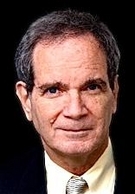
The Changing World
Your Digital Afterlife
By Richard Earle
Regis Group Affiliate
Taking a cue from David Basch’s last piece in the December agenda about end-of-life planning, we have noticed that a number of pundits and bloggers are talking about something recently that probably hasn’t been thought much about yet. What happens to all that posted stuff if you die?
A Media Explosion
Posting on sites like Facebook and Twitter among the very young, (recently enhanced by the “buzz” surrounding the film “The Social Network,” the story of the creation of Facebook) has been phenomenal and very rapid. So the information most “friends” display there is probably thought to be under their control forever.
But as David reminded us, we are not immortal, and must prepare in many ways for the end. Think of the large amount of information that we leave behind on social network sites. Proper planning would suggest that someone should be assigned to clean that up, once we depart; or all ownership to that material might disappear.
One writer even suggests that we assign a digital executor. They should be supplied with a list of sites, and all your passwords.
What about PayPal?
The obvious thing to target is the daily record of our activities on Twitter and Facebook, but consider PayPal and other hackable elements that may be costly to your heirs.
It’s worth taking a moment away from your posting and “Tweeting” to consider it.
Your Response Requested
New Forum Question
Once again we are reaching out to all of our friends and allies to present a range of views on a key question affecting us all. This time our question is:
“What are the steps that individuals and organizations might consider to take advantage of the still uncertain U.S.economic recovery?"
Just as before, your candid assessment of our common situation is appreciated. Answers will be posted along with your name and title (if you so choose) on our website.
Please visit the existing forum to view the range of answers to our last question: "What is the most important question to be considered by businesses and community leaders today?" Please e-mail your answers to: infotrg@regisgroup.com. As always your participation in our reach into the Global community of leaders for answers is appreciated.
|
The Regis Group, Inc.
102 North King Street | Leesburg, VA 20176 | 703 777-2233 | www.regisgroup.com
February Agenda!
Re-thinking the Planning for
Strategic Alliances
By Marc P. Chinoy
Regis Group President
Principle:
A Strategic Alliance is the means of levering the normal, ongoing activities of two or more groups to increase each group's influence in relation to targeted segments of the marketplace (visit our Alliances Leadership Tool for more information).
As the current marketplace continues to strengthen, there is a distinct benefit to seeking out new and / or expanding on previous working alliances, sometimes in what might seem unusual places. Well constructed Alliances have the effect of broadening recognition and influence in the marketplace for each party, as well as adding a layer of revenue sources.
In hunting for potential allies, it can be beneficial to look at previous or existing competitors (to the extent this is not in breach of anti-trust considerations), who play in parts of your market that are of interest to you, but not enough to build a complete entry package.
As a part of your annual planning, it makes sense to formally review how to lever the strengths of other groups to compliment the services you offer without constructing a market unit from the ground up.
Basic Principles
Be careful that in forming a working partnership, the leadership of each partner communicates recognition of the independent nature of the partner within the group, to avoid planning that is cut short when the expectation is a response to direct as opposed to request activities. At the start of each such relationship it is critical to lay out the joint planning protocols for each contributing group.
Making an assumption of action in the absence of formally written plans and measurable promises is risky business.
Working Steps
At the start, designate mechanisms promoted internally by each of the partners, including mutually agreed to joint decision-making mechanisms. Agree formally in writing to the common market segment being mutually targeted and the common result being sought.
At the very beginning, determine ALL joint strategies and agree upon the relative resources and schedule of joint activities and how they fit against individual initiatives.
It is most important to understand that these are NOT esoteric steps, but a critical part of planning for success with a Partner.
As important as it is to think out and write down strategic intentions within your group, the stakes in not doing so rise sharply in an alliance. Remember, as with so much of group business efforts,
“The Plan is The Thing!”
|
Focus on the Future
Guest Predictions:
Rich Storey
Guest Predictions is a regular feature in which we ask leaders in a number of professions questions that affect us all.
Rich Storey, CAE
Rich retired from a 35 year career in association management and is currently President and CEO of DaaRoo Pharmacy in Chevy Chase, Maryland. He served as the chief executive of state, national and international associations. He is married to Carol R. Storey, R.N. a practicing nurse in Fairfax County Virginia. They have four daughters and eight grandchildren.
Q: What changes in your professional environment in the past 3-5 years have you found to be the most beneficial?
A: The single largest benefit has been serious progress in technology and communication. Advanced computer programs improve our ability to analyze, plan, and then to communicate the results. The virtual explosion of the Internet as a source for both communication and research is nothing short of miraculous.
Q: What changes have been the most troubling to you?
A: The younger generation is not as focused on acquiring key management skills and undertaking critical interactions necessary to stimulate growth as I would hope. There is a very different attitude in the current group from the beliefs of the boomers. As a result, volunteer organizations have been having increasing trouble attracting younger members, and getting younger members to engage as volunteers on projects.
Q: How will globalization affect your professional area in the near term?
A: Inferior products produced abroad are rapidly appearing and competing with those produced at home. This is undermining our ability to both produce and fill the capacity of U.S. companies. There is a great deal of discussion in the groups with which I am engaged as to our inability to compete without dropping our standards. It is a detriment to the US economy to rely on outsourcing jobs to other countries as a means to lower the cost of doing business.
Q: What significant challenges might be anticipated in your professional area in the next few years?
A: Organizations need to develop or acquire different skill-sets from those in place only a few years ago. They need to evolve plans following a critical path to replace the steadily reducing ranks of skilled Leaders. This is putting us at risk at the same time that recruiting of young talent for non-profits is getting tougher.
Q: What are the greatest challenges confronting young professionals in Western culture today?
A: Young Professionals are challenged to take what they have learned academically and apply this to their areas of responsibility expeditiously. There is a need for a mechanism to boost skills and enhance the foresight to look to the future. All young leaders should feel the need to find mentors to help them move through their careers.
|
|
|
 |
 |
 |

Marc Chinoy
President's Letter
"Two Heads"
Organizational entities are formed because of the universal truth that they will multiply the results of individual efforts.
Ground Rules
Alliances between organizations are formed because of the somewhat shakier reality that combining the intentions of two or more entities will similarly benefit the individual groups.
For Alliances to work a set of rock-solid ground rules must underpin the effort.
Without clear structure to the relationship, not only the venture, but potentially the individual partners are at risk. In this time of a damaged economy, when recovery and strong steps forward are the order of the day, the formation of Alliances, some most unlikely in other times, is worth a serious review.
This edition of The Agenda touches what we hope is a bit more than the surface of the issue with more targeted methods appearing in future months both here and on our website under: NEW FROM REGIS - NEW LEADERSHIP TOOLS.
The Bottom Line
The bottom line is that corporate alliances, while not a critical function, significantly enhance the prospects for success when they are constructed correctly (and yes, for those of you who have been a part of Regis Planning sessions, I have applied our universal voting categories to this issue).
Happy Hunting in an opening marketplace!
MPC

BizSpeak:
Over the Top
Definition:
Extreme circumstances, Positioning, Posture or End-effect, in particular related to slow, neutral, or Ho Hum start point
Related Terms:
Off The Charts, Bonanza, The Whole Nine Yards
How it Sounds:
“Sally’s presentation went OVER THE TOP when she showed the BoD how to dump the main competitor DEEP IN THE SWAMP once and for all.”
|
|